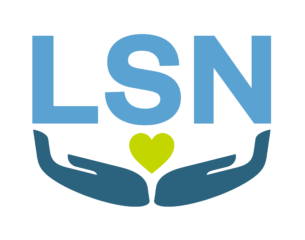Racial trauma refers to the harmful impact of race-related stress, harassment, violence (including witnessing such violence), racism, and discrimination on mental health. Similar to other types of trauma, such as sexual assault, racial trauma shares many symptoms with PTSD. Unfortunately, for many students, the typical stressors of the college experience can be intensified by the burden of racism and racial trauma. Many students may not only face isolated incidents of overt racism but also endure continual and systemic exposure to such experiences. Racial trauma can lead to intense emotional and physical repercussions, affecting multiple aspects of well-being and academic success. The responses to racial trauma often mirror those of other significant traumas and stressors.
Common Responses to Traumatic Events
Though trauma affects people differently, there are some common reactions you might experience. These signs and symptoms may begin immediately, or you may feel fine for a few days or even weeks before suddenly experiencing a reaction. It’s important to remember that these reactions are normal responses to an abnormal situation, even though they may cause distress.
Physical Reactions:
- Insomnia or nightmares
- Fatigue
- Appetite changes
- Neck or back pain
- Headaches
- Heart palpitations
- Chest pains
- Dizziness
Emotional Reactions:
- Flashbacks or “reliving” the event
- Excessive nervousness or jumpiness
- Irritability or anger
- Feelings of anxiety or helplessness
- A tendency to be easily startled
Effect on Productivity:
- Inability to concentrate
- Increased errors
- Memory lapses
- Increased absenteeism
Racial Trauma is a Public Health Emergency
Racism and Microaggressions Lead to Worse Health
Discrimination is Harmful to Your Mental Health
United Nations says racism and xenophobia are ‘contagious killers’ too
Ways to Cope with Traumatic Events
- Be tolerant of your reactions. They are normal and will likely subside over time. Acknowledge that it may take a while to feel entirely “normal” again.
- Give yourself time. You may feel better but then experience a “relapse.” This is normal, so allow yourself plenty of time to adjust.
- Spend time with others, even if it is difficult at first. It’s natural to withdraw when you’re hurt, but the company of others can be beneficial.
- Talk about your experience with friends. For most people, talking helps relieve intense emotions.
- Maintain your normal routine. Familiar tasks can offer comfort and help put some psychological distance between you and the traumatic event. Staying active helps shift your focus away from the trauma.
- Structure your time and stay organized. It’s normal to forget things when you’re under stress, so keep lists and double-check important work.
- Maintain control where you can. Make small decisions, even if they seem unimportant or you don’t feel like you care.
- Let the event motivate you to take action. Join groups that address related issues or find ways to help others.
- Ask for help if you feel overwhelmed or notice that your responses are interfering with your work, family, or social life.
- Take care of yourself. Ensure you eat well, sleep, and rest.
Healing from Racial Trauma in the Workplace
Racial trauma can also occur in the workplace. It is important to stay informed and be aware of the resources and tools available to support healing, whether you are a mental health provider, faculty member, manager, or staff member.
Video Toolkit to Support the Well-being of Students of Color: This video series features scholars and practitioners from across the country who provide evidence-based information for faculty, staff, and providers to foster a positive learning environment and support the mental health and well-being of students of color.
Academics for Black Survival and Wellness was organized by a group of Black counseling psychologists and their colleagues who practice Black allyship. Guided by a Black feminist frame, the group hopes to foster accountability and growth for non-Black people and enhance healing and wellness for Black people.
Racial Reconciliation: Do White Therapists Talk to Their White Clients About Race by Hayden C. Dawes, LCSW
An Invitation to White Therapists by H.C. Dawes
How to Manage When Things Aren’t Ok and Haven’t Been for Centuries
For many years, public and mental health professionals have recognized that racism, discrimination, oppression, and inequality negatively affect physical, mental, and spiritual health. This website has been created to assist with understanding and healing from racial trauma.

